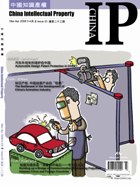
The well-watched infringement case brought by Hong Chuantian, the inventor and patent holder of the "Multi-Card Bidirectional Receiving and Dispatching Handset", against a Shenzhen company was finally settled.On April 2, Global Online (Beijing) Technology Co., Ltd. held a news conference on "Independent Innovation and Intellectual Property Rights," during which Mr. Hong Chuantian, board chair, announced that both parties had signed a settlement agreement and issued a statement regarding IPR protection. It included that letters from lawyers to suspected infringers at home and abroad will be sent. They will demand the execution of a patent license agreement within a prescribed period, and those who failed to do so will be held legally responsible. Furthermore, domestic brand enterprises respecting intellectual property rights shall be granted royalty-free patent licenses from Global Online.
Mr. Hong Chuantian's patent has generated letters of intent for cooperation from substantial companies as far away as the Middle East, European Union, Hong Kong, and Taiwan.
Mobile phones with independent IPR manufactured by Global Online will begin marketing in June.
The dual mode mobile handset is considered the first option for the smooth transition of mobile phone from 2G to 3G by the industry. The patent dispute between Global Online and a Shenzhen company revolved around key technology in this field.
On November 7, 2003, Mr. Hong Chuantian submitted to the Patent Office of SIPO a utility model patent application with the heading of, "Multi-Card Bidirectional Receiving and Dispatching Handset". This invention provides a mobile phone main board with multi card seats for the insertion of SIM cards from different countries and regions as well as different network companies. These SIM cards can work at the same time, go into a "standby" mode simultaneously, and receive, and dispatch conversations in chorus, thus realizing the function of "one instrument with multiple phone numbers". The patent right was granted on December 15, 2004. Concurrently, it was patented in Japan, South Korea as well as China's Taiwan and Hong Kong.
In August 2006, Mr. Hong Chuantian filed an action against a Shenzhen company in the Beijing No.1 Intermediate People's Court. The complaint alleged that the company's dual mode, dual standby CDMA/GSM handset infringed on the patent of its "Multi-Card Bidirectional Receiving and Dispatching Handset", demanding that the Shenzhen company cease and desist patent infringement and pay damages of RMB 500,000. On December 1, 2006, the organization in Shenzhen filed a request for invalidation of the patent right questioning the Patent Reexamination Board ("PRB") of SIPO. The PRB subsequently tried the case. Early this year, both sides reached a settlement concluding with a patent license agreement.
Globally, the total number of the GSM patent applications filed by enterprises such as Nokia, Alcatel, Ericsson, Motorola, Philips, Siemens, NEC, Samsung, have increased from over 2400 in 2004 to more than 3000 at present. During the same period, the number of the patented GSM handsets from China's enterprises numbered only 327. In 2006, the sales of mobile handsets in the domestic market reached approximately 120 million with revenue of USD 48 billion. Domestic mobile handsets accounted for 35 million units sold and sales totaling USD 4.2 billion, less than ten per cent.
(Translated by Zhang Meichang)
|
Copyright © 2003-2018 China Intellectual Property Magazine,All rights Reserved . www.chinaipmagazine.com 京ICP备09051062号 |
|
|



